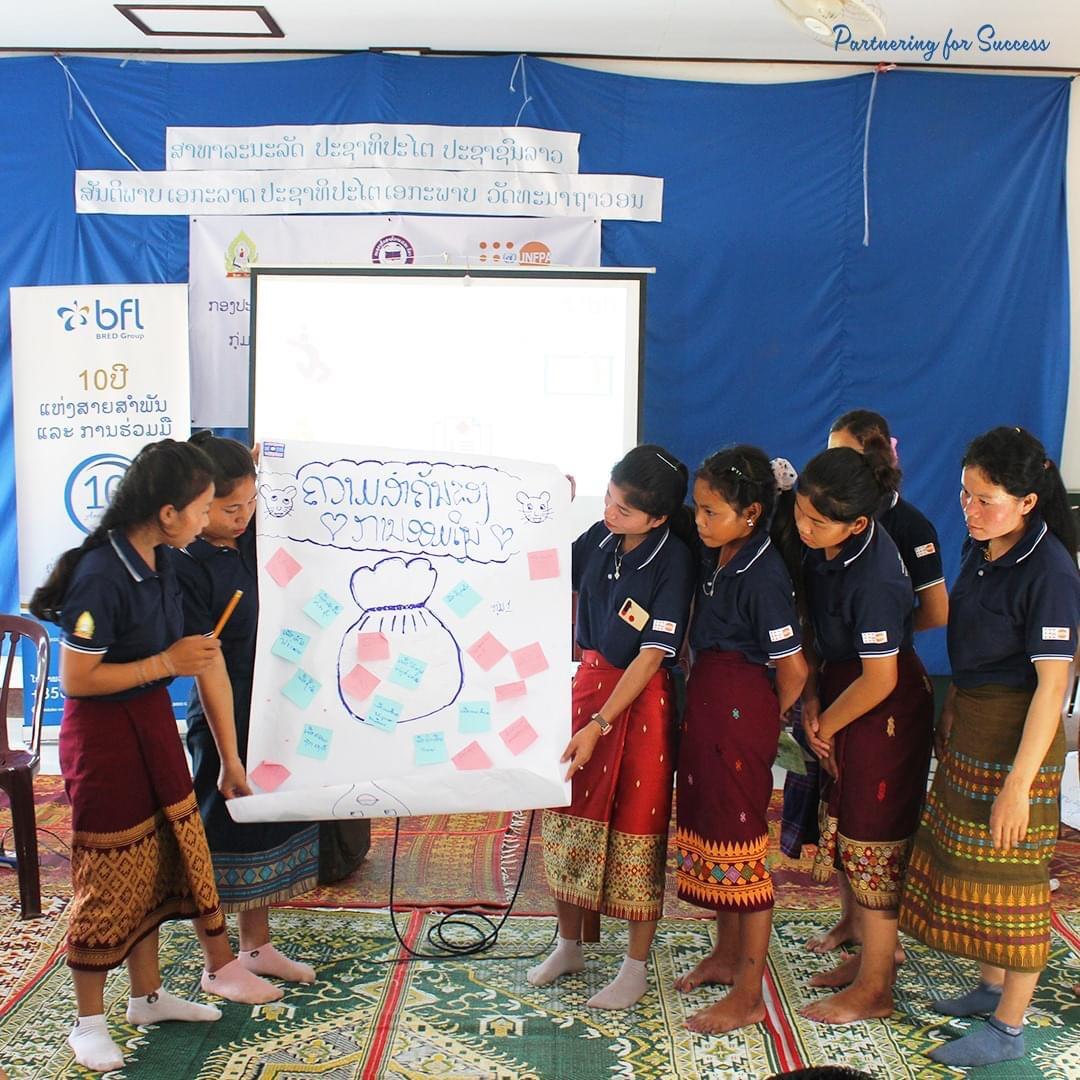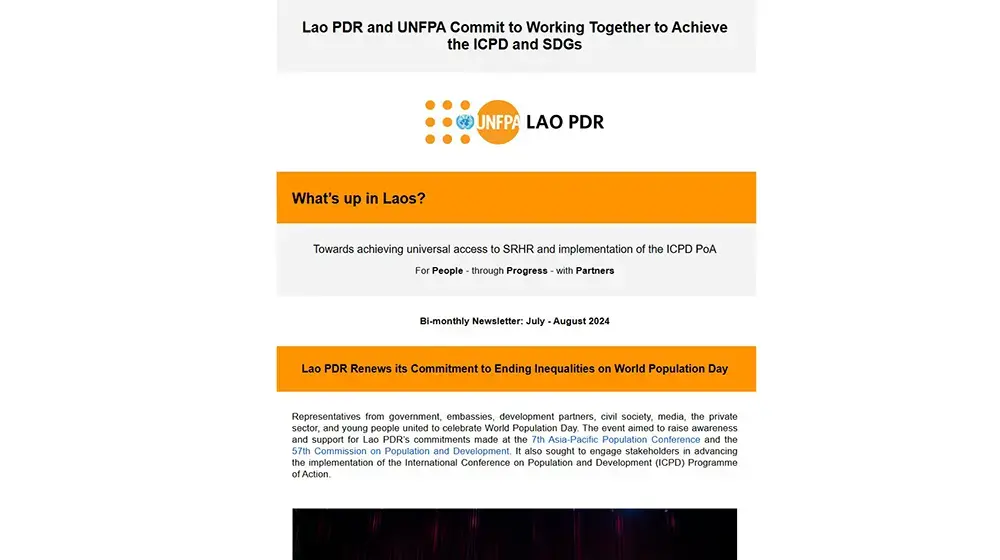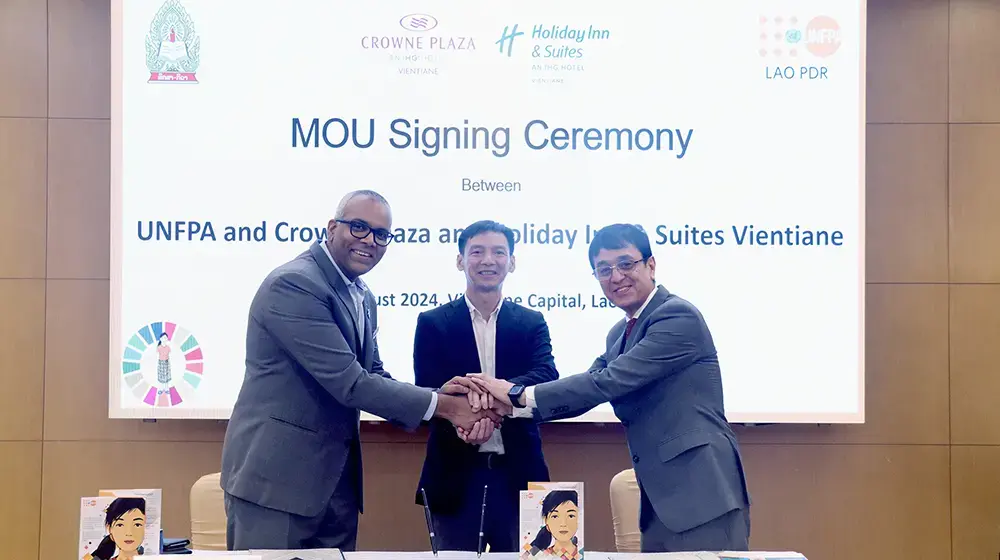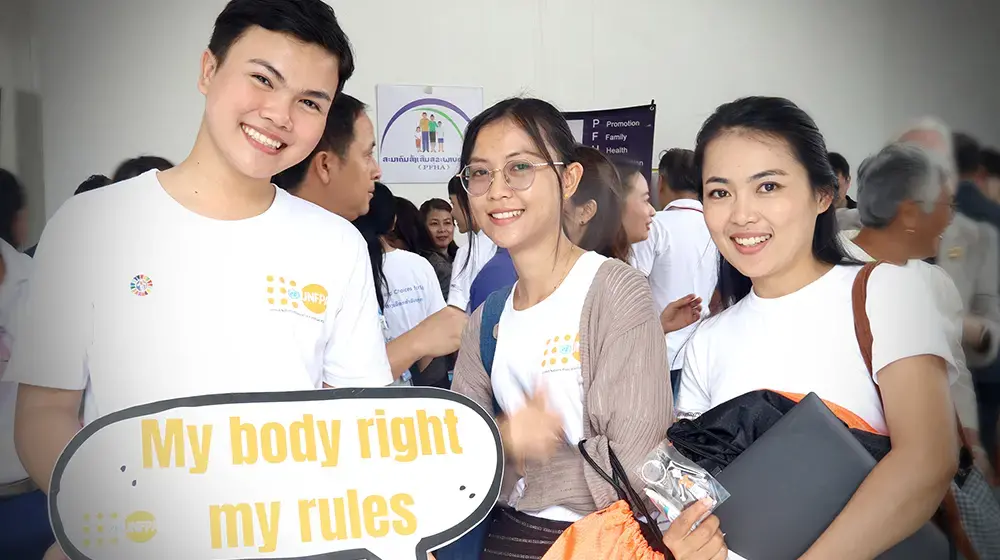COVID-19 lasting impact in Lao PDR is likely to be socio economic. The response to prevent and manage spread has been highly effective, but has to mitigate a longer-term effects on the economy, individuals and families and communities.
COVID-19 is expected to roll back progress towards the Sustainable Development Goals, putting the 'world we want' further out of reach. Inequality and poverty are on the rise, and communities, especially the most vulnerable people require further protection to secure positive health, social and economic outcomes. Resilience to COVID-19 requires us to adopt an approach based on a shared responsibility and solidarity, but also developing new patterns of action and behaviours from all social actors Government, Private sector, development community and civil society.
Health first!
In Lao PDR, UNFPA is supporting the Government of Lao PDR to maintain essential health services and systems by prioritizing services related to sexual and reproductive health, availability of supplies and actively accelerating investments in the capacities of the health workforce and data to support essential clinical and outreach services.
Since the end of the lockdown, training for midwives and health service providers is taking place to increase the quality of care for pregnant women and youth. Recently a room for sexual and reproductive health services was created at the provincial hospital in Oudomxay Province. A mobile clinic van is also taking the roads to reach youth working in factories and vulnerable ones out of school as well those from vulnerable and ethnics groups, in rural regions.
Protecting people
UNFPA is supporting efforts to fill gaps in tracking and reaching vulnerable populations in all districts through decentralized activities engaging partners. Nang Noi groups continue to provide life skills training to help girls be able to manage their lives. Chiefs of villages play an active role breaking cultural barriers and setting up a climate of equity and respect by mobilizing men and boys.
Hotlines are assisting youth, women victims of violence and the general population by providing phone counseling and developing referral linkages to health or social facilities. UNFPA is supporting the Ministry of Education and Sports to secure learning sexual and reproductive health and rights at schools and vocational training centers through standardized curriculum, teaching aids and well trained teachers. Ending Gender Based Violence programs are targeting the needs of women in terms of social and health services and putting in place a referral pathway for victims and survivors of violence prioritizing their rights, choices, safety and empowerment. These efforts are maintained thanks to the commitment of Lao Government to achieve ICPD25 goals and to the participation of bilateral, private sector and INGOs partners
Community resilience
While the world cannot go backwards to pre-COVID days, it can proactively shape a “new, better, normal” in moving forward. Communities will bear the brunt of the socio-economic impact of COVID-19 but they also hold the key to flatten the curve, respond to the pandemic and ensure longer-term recovery. Communication efforts, social dialogue, ensuring gains in gender equality don’t roll back, combatting stigma and discrimination, remembering those in rural areas and left behind, raising awareness to limit informal work, increasing mutual support at the household between men and women and support innovative community solutions.
For more information please contact:
Mr. Tej Ram Jat,
Programme Specialist- Adolescent Sexual and Reproductive Health, UNFPA Lao PDR
Email: tejram@unfpa.org
************
UNFPA, the UN's sexual and reproductive health agency, works in over 150 countries including Lao PDR, to achieve zero maternal deaths, zero unmet need for family planning and zero gender-based violence and harmful practices towards women and girls.





